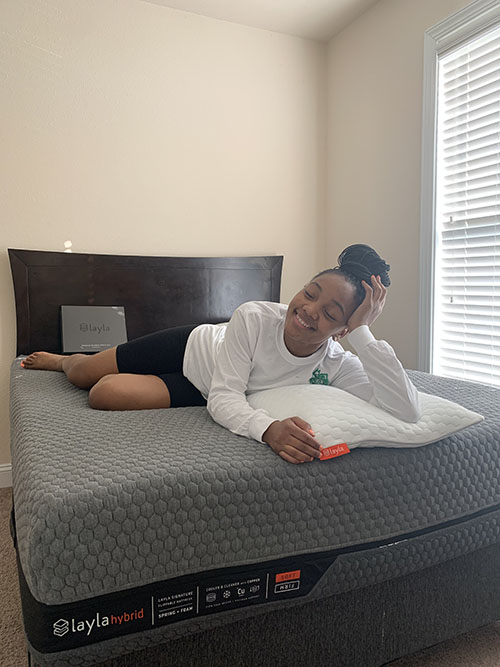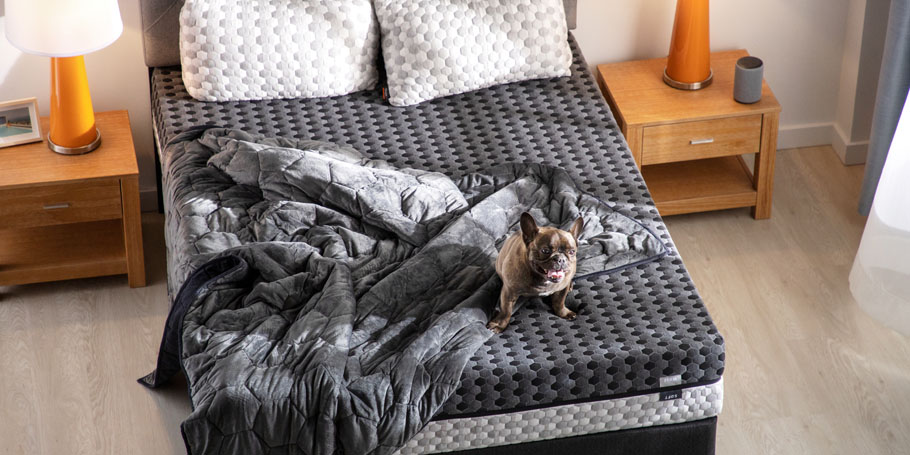What is Deep Sleep?
Before we cover how to increase deep sleep, it’s important you understand what deep sleep is. When you sleep at night, you go through four distinct stages of sleep.
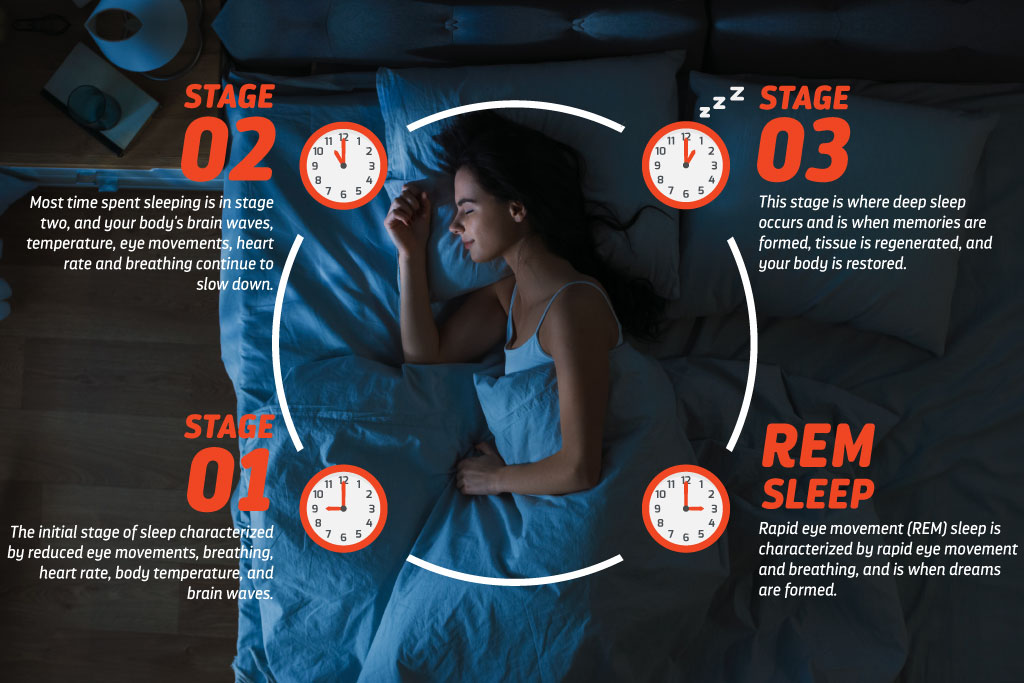
The stages of sleep include:
- Stage One: This stage is where your body prepares to sleep and is characterized by reduced eye movements, breathing, heartbeat, body temperature, and brain waves. This is the lightest stage of sleep, which means you can easily be woken up by movements, noises, and other disturbances.
- Stage Two: The second stage of sleep is where you spend most of your time, and your body’s brain waves, temperature, eye movements, heartbeat, and breathing continue to slow down. The reason this happens is so your body can prepare for deep sleep.
- Stage Three: The third stage of sleep is also called NREM sleep or slow-wave sleep. Stage three is comprised of deep sleep, where your brain waves are deep and prolonged, which makes it more challenging to wake up. Stage three restores your body, replenishes tissues, and forms memories.
- REM Sleep: Rapid eye movement (REM) sleep is the stage of sleep where dreams occur. During this stage, your eyes move rapidly, breathing becomes faster and irregular, heart rate increases, and your arms and legs become temporarily paralyzed.
The progression of these stages of sleep throughout the night are called sleep cycles, and healthy adults experience four to five sleep cycles per night. During the first few sleep cycles, you spend more time in stage three and experience deep sleep, while the later sleep cycles are overtaken by REM sleep.
Why is Deep Sleep Important?
So, you know what deep sleep is, but why is it important? Simply put, deep sleep helps your body recharge and feel better the next day. Think of deep sleep as the charger to your phone; it gives you all the energy you need to function properly throughout the day.
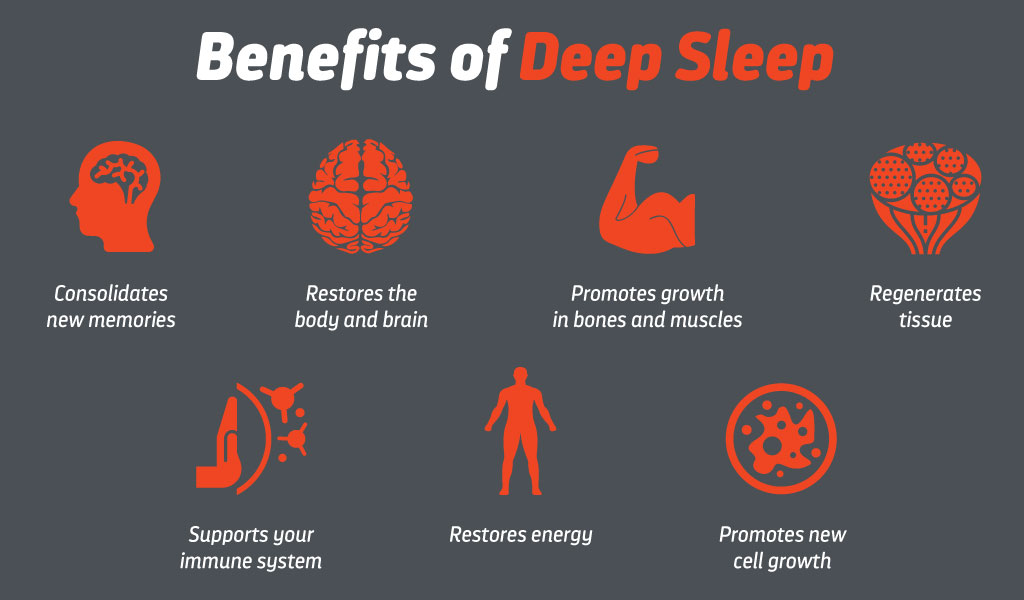
There are many studies that discuss the importance of deep sleep on the body. According to the American Sleep Association, here’s what deep sleep can do:
- Consolidate new memories
- Restore the body and brain
- Promote growth in bones and muscles
- Regenerate tissue
- Support your immune system
- Restore energy
- Promote new cell growth
If you’re curious about whether you’re getting the right amount of sleep needed to enter deep sleep multiple times throughout the night, you can wear smart technology that tracks your sleep. Smartwatches and phone apps can give you a basic understanding of your sleeping habits throughout the night by providing keen insight on whether you’re getting enough sleep and entering each stage an appropriate number of times.
However, these readings should be taken with a grain of salt, as these tech pieces can provide inaccurate data. When in doubt, consult with your doctor.
5 Tips for Increasing and Improving Deep Sleep
Ready to learn how to sleep deeper? Below, we provide five helpful tips on how to improve deep sleep so you can wake up feeling your best.
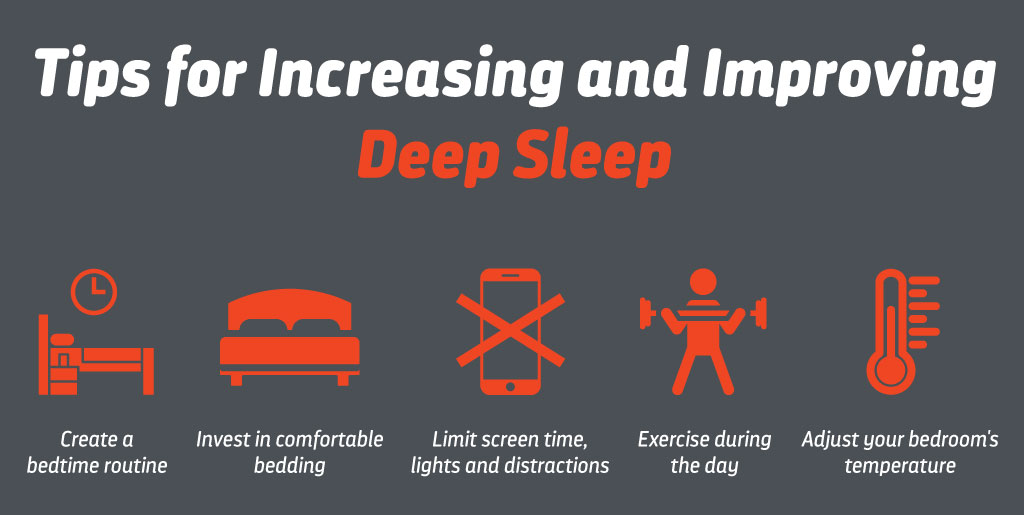
1. Create a Bedtime Routine
Creating a healthy nighttime routine is one of the best things you can do to get deep sleep. Have you ever noticed how you feel energized and drowsy at different parts of the day? That’s because your body is equipped with an “internal clock,” also called the circadian rhythm. The circadian rhythm is your body’s natural sleep-wake cycle that resets every 24 hours and is in charge of producing melatonin, the hormone that makes you sleepy.
If you go against your body’s natural sleep-wake cycle, such as staying out late at a party or binge-watching Netflix to the early hours of the morning, you’ll disrupt your circadian rhythm and feel awful the next day. Establishing a bedtime routine that you can stick to every night will ensure you get enough deep sleep.
To create a bedtime routine, follow these tips on how to adjust your sleep schedule:
- Limit the use of electronic devices one to two hours before bed to send a signal to your body to go to sleep
- Go to bed when you feel tired—trying to sleep when you’re wide awake will leave you tossing and turning
- Don’t eat heavy meals right before bed, instead, eat dinner 2 to 4 hours before it’s time to wind down
- Don’t drink water before bed, or other liquids like alcohol and caffeine, which can result in bathroom breaks throughout the night
- Be consistent—a routine means you go to sleep at the same time every night of the week
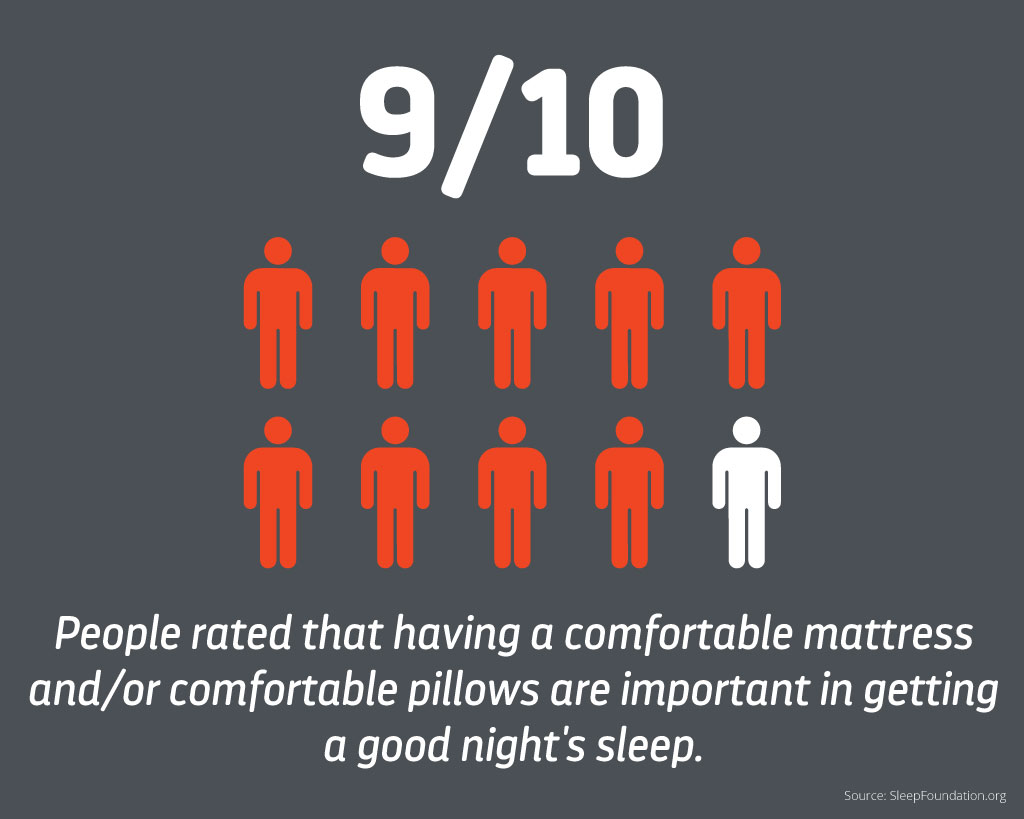
2. Invest in a Comfortable Bed and Bedding
The surface you sleep on is another way to increase and improve deep sleep. We’ve all stayed in a hotel that had scratchy sheets and a mattress that felt like it was made from a slab of wood. How’d you sleep? Probably not great! In fact, the National Sleep Foundation found that 92 percent of respondents of their Bedroom Poll claimed a comfortable mattress is important in getting a good night’s sleep, while 85 percent claimed sheets and bedding were important.
If you’re having trouble sleeping at night, your mattress and bedding may be due for an upgrade. At Layla Sleep, our hybrid mattresses will hug you to sleep every night, while our kapok pillow will keep you cool and refreshed while you’re off in dreamland.
3. Limit Screen Time, Lights, and Distractions
The sun dictates our natural sleep-wake cycle. Before the advent of electricity and illuminating lights, humans spent their evenings in dim settings with fire or complete darkness. However, smartphones, TV, laptops, and other devices keep us up much longer after the sun goes down.
Most technological devices emit a light called blue light. Blue light, while good for the environment, isn’t great for our sleep cycles. Studies have found that blue light suppresses melatonin and shifts the circadian rhythm, which keeps you up much longer at night. To increase deep sleep, swap your phone screen for a book, a conversation with your partner, or meditation.
4. Exercise During the Day
Wondering how to get deep sleep naturally? Try exercising! Exercising is a great way to improve your body and mind. It’s also a great way to improve your sleep. Studies have found that performing aerobic exercises during the day increases the amount of slow-wave sleep (a.k.a. deep sleep) at night, which rejuvenates your body. Exercise also stabilizes your mood, helps you fall asleep quicker, improves the quality of your sleep, and decompresses your mind—all great for falling asleep faster.
So, going for a 30-minute run, walk, jog, bike ride or swim can help you sleep deeper. Just make sure you exercise at least 2 to 4 hours before bed. Exercising too close to bedtime can make you feel energized and keep you up at night.
5. Adjust Your Bedroom’s Temperature
As you may remember, your body’s temperature lowers when you enter the first few stages of sleep. We’ve all tossed and turned in a puddle of sweat at night during the dog days of summer. That’s because the heat made it difficult for our bodies to get to the preferred temperature for sleeping.
The ideal bedroom temperature that promotes better sleep is between 60 and 67 degrees Fahrenheit. So, if you have an air conditioner or central air, adjust your bedroom’s temperature somewhere between this range. Not everyone has access to these accommodations, though.
If this is your case, consider switching to bamboo sheets. Bamboo is known for its capability of wicking away air moisture and sweat, so you can stay dry and cool at night. A copper memory foam mattress is another way you can get deep sleep and remain comfortable throughout the night. Copper is a natural thermal conductor and will carry away heat from your body while you sleep.
Other tips for sleeping cool at night include switching your ceiling fan to rotate counterclockwise to push cool air down and closing your blinds during the day to keep the sun’s heat out.
Key Takeaways on How to Deep Sleep
As you know, sleep is important, and learning how to get more deep sleep at night will change your life for the better. Deep sleep is needed for hormonal regulation, physical renewal, memory consolidation, and so much more. From creating a bedtime routine you can follow to limiting your screen time before bed, these tips on how to increase deep sleep will give you the energy to take on the day the moment you wake up.

![Deep Sleep [How to Increase & Improve Deep Sleep]](https://laylasleep.b-cdn.net/wp-content/uploads/2020/05/taydontplay-03-14-2020-31-16.jpeg)
